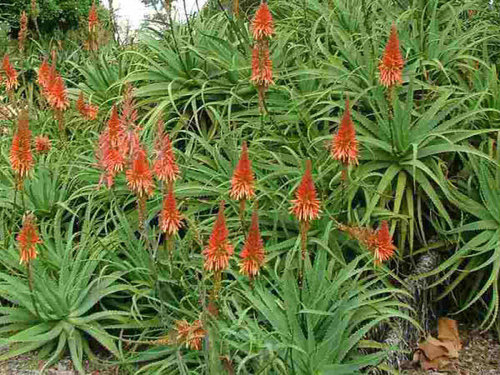Home page Care Health Treat Cancer Esophageal Cancer
Esophageal Cancer - Treat with Aloe Arborescens / Vera

The medical plant Aloe Arborescens treats Esophageal Cancer more efficiently than Aloe Barbadensis (Aloe Vera)
Research from the Palatini Institute in Salzano, Venice, Italy, rvealed that Aloe Arborescens is 200% richer in medicinal properties than Aloe Barbadensis (Aloe Vera).
Aloe Arborescens is of all known plants the plant with the highest number of identical enzymes in our body: it fills 73 of the main 95 enzymes of the human body.
According to multiple scientific reports, Aloe Arborescens is extremely effective in the following areas: it detoxifies and cleanses blood vessels; Is effective in intestinal health, heartburn, reflux, gastritis and other diseases resulting from the malformation of the Immune System.
Esophageal cancer is cancer arising from the esophagusthe food pipe that runs between the throat and the stomach. Symptoms often include difficulty in swallowing and weight loss. Other symptoms may include pain when swallowing, a hoarse voice, enlarged lymph nodes ("glands") around the collarbone, a dry cough, and possibly coughing up or vomiting blood. The two main sub-types of the disease are esophageal squamous-cell carcinoma (often abbreviated to ESCC), which is more common in the developing world, and esophageal adenocarcinoma (EAC), which is more common in the developed world. A number of less common types also occur. Squamous-cell carcinoma arises from the epithelial cells that line the esophagus. Adenocarcinoma arises from glandular cells present in the lower third of the esophagus, often where they have already transformed to intestinal cell type (a condition known as Barrett's esophagus). Causes of the squamous-cell type include tobacco, alcohol, very hot drinks, poor diet, and chewing betel nut. The most common causes of the adenocarcinoma type are smoking tobacco, obesity, and acid reflux. Text origem Wikipedia. More information at https://en.wikipedia.org/wiki/Esophageal_cancer







